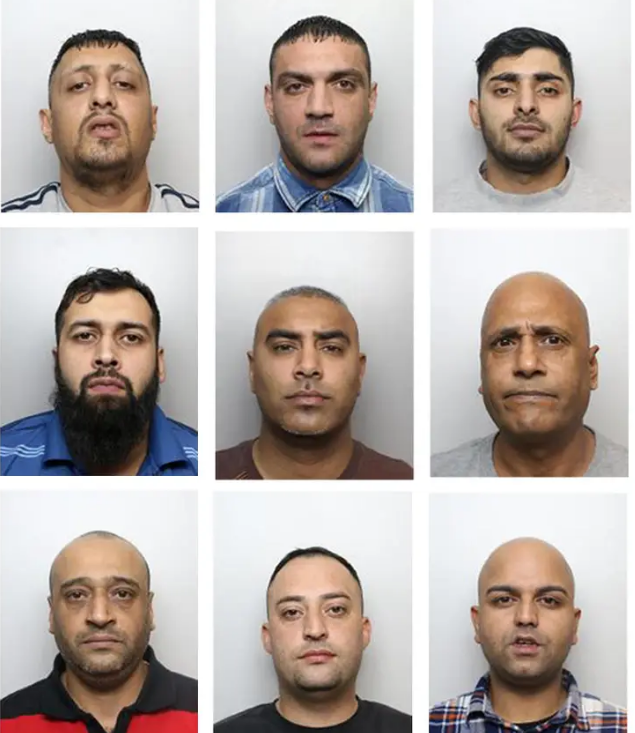The United Kingdom has recently confronted the long-simmering scandal involving organized child sexual exploitation, widely known as the “grooming gangs” case. This issue involves systematic abuse predominantly targeting vulnerable, working-class girls by groups mainly composed of men of Pakistani and South Asian descent in various English towns over several decades. After years of institutional denial and political sensitivity regarding the ethnic origins of the offenders, recent admissions by UK authorities have acknowledged these facts and the widespread failures within law enforcement and local agencies that allowed the abuse to persist largely unchallenged.
Historical Context and Scope of Abuse
The grooming gangs scandal in the UK dates back to the late 20th century, with cases documented in towns such as Rotherham, Rochdale, and Telford. Victims, often girls from disadvantaged socio-economic backgrounds, were subjected to repeated sexual exploitation, manipulation, and abuse. Investigations revealed that perpetrators systematically groomed these victims to facilitate ongoing abuse and control.
Reports estimated that thousands of children were affected over multiple decades. The abuse was characterized not only by sexual violence but also by intimidation, threats, and the creation of an environment in which victims felt powerless to seek help.
Ethnic Composition and Political Sensitivities
One of the most contentious aspects of the scandal has been the predominant ethnic backgrounds of the perpetrators, identified as men of Pakistani and broader South Asian heritage. For years, political and institutional actors hesitated to acknowledge this factor publicly, fearing accusations of racism and community backlash.
This hesitancy contributed to delayed responses and a lack of targeted intervention strategies. Only in recent years have UK authorities formally recognized the ethnic dimension as an important element in understanding and addressing the grooming gang phenomena. This acknowledgment marks a significant shift toward transparency and accountability.
Institutional Failures and Investigations
Multiple inquiries and independent reports have highlighted widespread failures within police forces, social services, and local governments. These included:
- Inadequate responses to initial reports and complaints by victims and their families.
- Insufficient interagency communication and coordination.
- Reluctance to confront cultural sensitivities that allowed perpetrators to evade scrutiny.
For instance, the 2014 Independent Inquiry into Child Sexual Exploitation in Rotherham found that approximately 1,400 children were abused between 1997 and 2013, with authorities often ignoring or dismissing evidence. Similar patterns were uncovered in Rochdale and other locales.
Recent Developments and Official Responses
In response to these findings, UK governmental bodies have committed to improved training, policy reforms, and enhanced safeguarding measures. The Home Office and local councils are working to implement strategies that prioritize victim support and proactive identification of abuse.
Notably, police departments have increased efforts to investigate and prosecute offenders, with several high-profile convictions in recent years serving as a deterrent and symbol of the justice system’s commitment to addressing the issue.
Implications and Ongoing Challenges
While recognition of the ethnic backgrounds involved and institutional shortcomings marks progress, significant challenges remain. Community relations need careful management to prevent stigmatization, and resources must be allocated for comprehensive victim rehabilitation.
Experts emphasize the importance of sustained vigilance and continual improvement in safeguarding practices to prevent recurrence and ensure the safety of vulnerable populations across the UK.
In conclusion, the United Kingdom’s confrontation with the grooming gangs scandal represents a critical step toward acknowledging and addressing decades of organized child sexual exploitation. The recent admissions by authorities concerning the ethnic composition of offenders and systemic institutional failures have opened the door for greater transparency and reform. Although progress has been made through increased investigations, policy changes, and victim support initiatives, ongoing challenges remain, particularly in balancing community relations and enhancing protective measures. Continued commitment from law enforcement, government bodies, and social services is essential to prevent future abuses and to provide justice and rehabilitation for victims affected by this grievous chapter in UK history.

